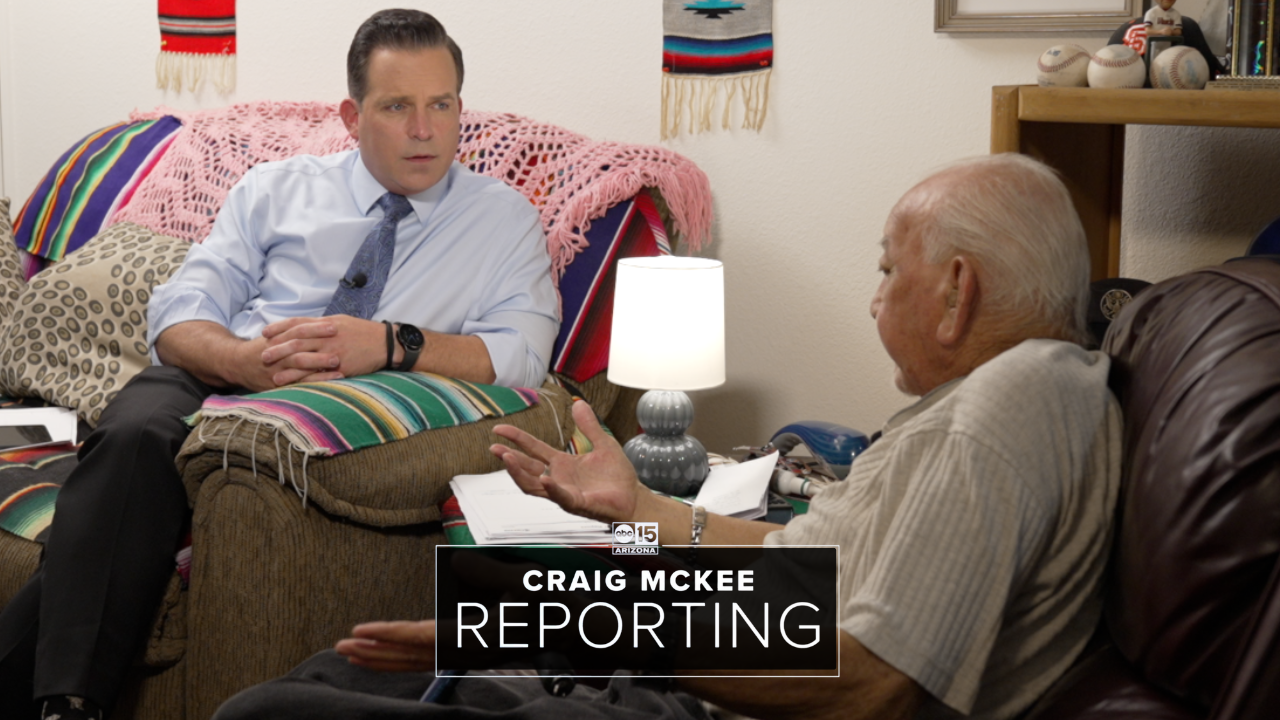PHOENIX — Edward Murillo's military service spanned years in the Air Force and Arizona Army National Guard - a source of deep pride. But a recent medical emergency thrust him into an entirely different fight: battling for healthcare coverage and financial survival.
On May 6th, a neighbor called an ambulance for him, and he was rushed to the emergency room at HonorHealth for dangerously low red blood cell counts. Part of that treatment involved a transfusion of three pints of blood. Sent back home after treatment, he thought the worst of the situation was behind him.
A couple of months later, he was surprised to receive a $2,519 bill from HonorHealth for the services, despite believing the Department of Veterans Affairs would cover the costs.
“I only make about $1,400 a month,” Murillo said. “I pay for my car insurance, food, groceries, telephone bills and other things… what am I going to do, rob a bank?”
Murillo blames poor communication between the VA and outside healthcare providers for his predicament, saying, “All I want is just clear answers from any medical facility. Please have the VA work with the hospitals or doctors…especially for veterans.”
That frustration led him to ABC15.
Murillo takes part in the Veterans Community Care Program (VCCP), which serves approximately 2.8 million veterans.
Launched as part of the VA Mission Act of 2018, the VCCP allows eligible veterans to access medical care from private providers when timely VA care is not available or when specific criteria are met.
The initiative is intended to offer veterans more flexibility and improve their access to quality healthcare. For services to be covered, the VA must typically be notified in advance or within a short window during emergencies—a step that can create confusion and billing issues if not clearly communicated.
Murillo tells ABC15 that when he went to the emergency room at HonorHealth, they were notified and acknowledged of his veteran status, and he says they told him they would file the paperwork through the VCCP. However, statements began showing up for his ER visit saying he owed the balance.
“I'm getting them at least once a week,” Murillo said.
Murillo’s last bill, dated October 9th, 2025, stated it was his final bill.
Concerned he would soon be sent to collections, ABC15 reached out to Honor Health and the Phoenix VA regarding the billing issue to see if he could help find a solution.
After a little back and forth and a personal visit to the VA on Murillo’s behalf, the VA responded with an email saying, “This Veteran’s blood transfusion should have been billed to VA. We are working with both the Veteran and Honor Health Hospital to ensure the Veteran is not responsible for any out-of-pocket costs, and his claim is already being processed by VA.”
Honor Health also confirmed that the VA will be taking care of the bill and that Murillo would no longer receive statements from HonorHealth.
Edward Murillo was clearly relieved by the news when McKee called him on the phone to share the update.
“Oh, that’s great! I want to thank you for what you’ve done,” Murillo said, “I can’t thank you enough for your kindness.
As an Air Force veteran, Craig McKee has spent years sharing veterans’ stories of service and advocating for them and their families. You can reach out directly to him by visiting his page on ABC15.com.





